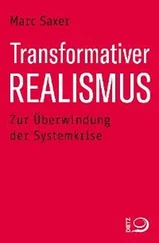Mark Fisher - Capitalist Realism - Is There No Alternative?
Здесь есть возможность читать онлайн «Mark Fisher - Capitalist Realism - Is There No Alternative?» весь текст электронной книги совершенно бесплатно (целиком полную версию без сокращений). В некоторых случаях можно слушать аудио, скачать через торрент в формате fb2 и присутствует краткое содержание. Жанр: Старинная литература, на английском языке. Описание произведения, (предисловие) а так же отзывы посетителей доступны на портале библиотеки ЛибКат.
- Название:Capitalist Realism: Is There No Alternative?
- Автор:
- Жанр:
- Год:неизвестен
- ISBN:нет данных
- Рейтинг книги:4 / 5. Голосов: 1
-
Избранное:Добавить в избранное
- Отзывы:
-
Ваша оценка:
- 80
- 1
- 2
- 3
- 4
- 5
Capitalist Realism: Is There No Alternative?: краткое содержание, описание и аннотация
Предлагаем к чтению аннотацию, описание, краткое содержание или предисловие (зависит от того, что написал сам автор книги «Capitalist Realism: Is There No Alternative?»). Если вы не нашли необходимую информацию о книге — напишите в комментариях, мы постараемся отыскать её.
Capitalist Realism: Is There No Alternative? — читать онлайн бесплатно полную книгу (весь текст) целиком
Ниже представлен текст книги, разбитый по страницам. Система сохранения места последней прочитанной страницы, позволяет с удобством читать онлайн бесплатно книгу «Capitalist Realism: Is There No Alternative?», без необходимости каждый раз заново искать на чём Вы остановились. Поставьте закладку, и сможете в любой момент перейти на страницу, на которой закончили чтение.
Интервал:
Закладка:
One of the most important questions will concern the
29
ineptitude of the unions: tied to the whole of their history of struggle against the disciplines or within the spaces of enclosure, will they be able to adapt themselves or will they give way to new forms of resistance against the societies of control? Can we already grasp the rough outlines of the coming forms, capable of threatening the joys of marketing? Many young people strangely boast of being "motivated"; they re-request apprenticeships and permanent training. It's up to them to discover what they're being made to serve, just as their elders discovered, not without difficulty, the telos of the disciplines.
What must be discovered is a way out of the motivation/ demotivation binary, so that disidentification from the control program registers as something other than dejected apathy. One strategy would be to shift the political terrain -to move away from the unions' traditional focus on pay and onto forms of discontent specific to post-Ford ism. Before we analyse that further, we must consider in more depth what post-Fordism actually is.
October 6, 1979: 'Don't let yourself get attached to anything'
'A guy told me one time', says organized crime boss Neil McCauley in Michael Mann's 1995 film Heat, 'Don't let yourself get attached to anything you are not willing to walk out on in 30 seconds flat if you feel the heat around the corner'. One of the easiest ways to grasp the differences between Fordism and postFordism is to compare Mann's film with the gangster movies made by Francis Ford Coppola and Martin Scorsese between 1971 and 1990. In Heat, the scores are undertaken not by Families with links to the Old Country, but by rootless crews, in an LA of polished chrome and interchangeable designer kitchens, of featureless freeways and late-night diners. All the local color, the cuisine aromas, the cultural idiolects which the likes of The Godfather and Goodfellas depended upon have been painted over and re-fitted. Heat's Los Angeles is a world without landmarks, a branded Sprawl, where markable territory has been replaced by endlessly repeating vistas of replicating franchises. The ghosts of Old Europe that stalked Scorsese and Coppola's streets have been exorcised, buried with the ancient beefs, bad blood and burning vendettas somewhere beneath the multinational coffee shops. You can learn a great deal about the world of Heat from considering the name 'Neil McCauley'. It is an anonymous name, a fake passport name, a name that is bereft of history (even as, ironically, it echoes the name of British historian, Lord McCaulay). Compare 'Corleone', and remember that the Godfather was named after a village. McCauley is perhaps the part that De Niro played that is closest to the actor's own personality: a screen, a cipher, depthless, icily professional, stripped down to pure preparation, research, Method ('I do what I do best'). McCauley is no mafia Boss, no puffed-up chief perched atop a baroque hierarchy governed by codes as solemn and mysterious as those of the Catholic Church and written in the blood of a thousand feuds. His Crew are professionals, hands-on entrepreneur-speculators, crime-technicians, whose credo is the exact opposite of Cosa Nostra family loyalty. Family ties are unsustainable in these conditions, as McCauley tells the Pacino character, the driven detective, Vincent Hanna. 'Now, if you're on me and you gotta move when I move, how do you expect to keep a marriage?' Hanna is McCauley's shadow, forced to assume his insubstantiality, his perpetual mobility. Like any group of shareholders, McCauley's crew is held together by the prospect of future revenue; any other bonds are optional extras, almost certainly dangerous. Their arrangement is temporary, pragmatic and lateral -they know that they are interchangeable machine parts, that there are no guarantees, that nothing lasts. Compared to this, the goodfellas seem like sedentary sentimentalists, rooted in dying communities, doomed territories.
The ethos espoused by McCauley is the one which Richard Sennett examines in The Corrosion of Character: The Personal Consequences of Work in the New Capitalism, a landmark study of the affective changes that the post-Fordist reorganization of work has brought about. The slogan which sums up the new conditions is 'no long term'. Where formerly workers could acquire a single set of skills and expect to progress upwards through a rigid organizational hierarchy, now they are required to periodically re-skill as they move from institution to institution, from role to role. As the organization of work is decentralized, with lateral networks replacing pyramidal hierarchies, a premium is put on , flexibility'. Echoing McCauley's mockery of Hanna in Heat ('How do you expect to keep a marriage?'), Sennett emphasizes the intolerable stresses that these conditions of permanent instability put on family life. The values that family life depends upon -obligation, trustworthiness, commitment -are precisely those which are held to be obsolete in the new capitalism. Yet, with the public sphere under attack and the safety nets that a 'Nanny State' used to provide being dismantled, the family becomes an increasingly important place of respite from the pressures of a world in which instability is a constant. The situation of the family in post-Fordist capitalism is contradictory, in precisely the way that traditional Marxism expected: capitalism requires the family (as an essential means of reproducing and caring for labor power; as a salve for the psychic wounds inflicted by anarchic social-economic conditions), even as it undermines it (denying parents time with children, putting intolerable stress on couples as they become the exclusive source of affective consolation for each other).
According to Marxist economist Christian Marazzi, the switch from Fordism to post-Fordism can be given a very specific date: October 6,1979. It was on that date that the Federal Reserve increased interest rates by 20 points, preparing the way for the 'supply-side economics' that would constitute the 'economic reality' in which we are now enmeshed. The rise in interest rates not only contained inflation, it made possible a new organization of the means of production and distribution. The 'rigidity' of the Fordist production line gave way to a new 'flexibility', a word that will send chills of recognition down the spine of every worker today. This flexibility was defined by a deregulation of Capital and labor, with the workforce being casualized (with an increasing number of workers employed on a temporary basis), and outsourced.
Like Sennett, Marazzi recognizes that the new conditions both required and emerged from an increased cybernetization of the working environment. The Fordist factory was crudely divided into blue and white collar work, with the different types of labor physically delimited by the structure of the building itself. Laboring in noisy environments, watched over by
33
managers and supervisors, workers had access to language only in their breaks, in the toilet, at the end of the working day, or when they were engaged in sabotage, because communication interrupted production. But in post-Fordism, when the assembly line becomes a 'flux of information', people work by communicating. As Norbert Wiener taught, communication and control entail one another.
Work and life become inseparable. Capital follows you when you dream. Time ceases to be linear, becomes chaotic, broken down into punctiform divisions. As production and distribution are restructured, so are nervous systems. To function effectively as a component of just-in-time production you must develop a capacity to respond to unforeseen events, you must learn to live in conditions of total instability, or 'precarity', as the ugly neologism has it. Periods of work alternate with periods of unemployment. Typically, you find yourself employed in a series of short-term jobs, unable to plan for the future.
Читать дальшеИнтервал:
Закладка:
Похожие книги на «Capitalist Realism: Is There No Alternative?»
Представляем Вашему вниманию похожие книги на «Capitalist Realism: Is There No Alternative?» списком для выбора. Мы отобрали схожую по названию и смыслу литературу в надежде предоставить читателям больше вариантов отыскать новые, интересные, ещё непрочитанные произведения.
Обсуждение, отзывы о книге «Capitalist Realism: Is There No Alternative?» и просто собственные мнения читателей. Оставьте ваши комментарии, напишите, что Вы думаете о произведении, его смысле или главных героях. Укажите что конкретно понравилось, а что нет, и почему Вы так считаете.












